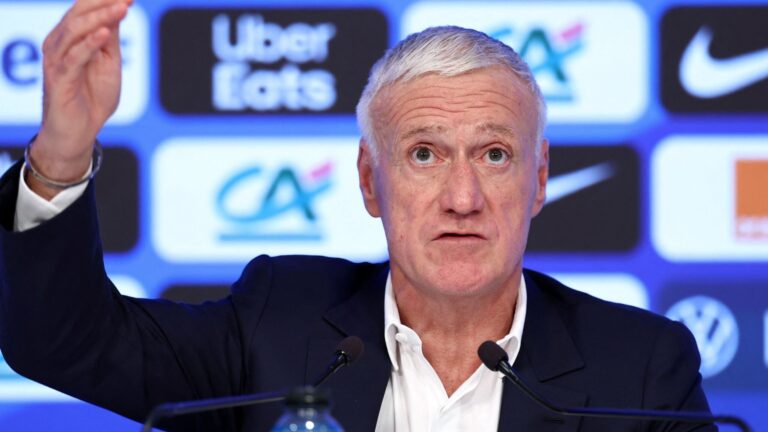Empowering Athletes Through Jude Bellingham’s Mental Health Advocacy
On World Mental Health Day, Jude Bellingham, the standout Real Madrid midfielder, delivers a compelling narrative about the burdens professional athletes endure and the vital role of confronting internal challenges. Based on his personal journey, Bellingham illustrates how embracing openness can cultivate deeper empathy and assistance within the athletic community, inspiring others to prioritize emotional well-being.



Jude Bellingham’s Path to Football Stardom
Players like Bellingham have long projected an unbreakable image to show that external judgments won’t affect their on-field performance. The Real Madrid athlete has revealed that in his initial phase at Birmingham, he regularly checked his name across social media while establishing himself at St. Andrew’s.
Major Achievements in His Career
After those beginning stages, Bellingham moved to Borussia Dortmund and eventually signed with Real Madrid in 2023. During his debut season in Spain, he helped win La Liga and the Champions League, and at just 22, he placed third in the 2024 Ballon d’Or, marking his swift climb to prominence in football.
Navigating Social Media’s Impact on Emotional Health
Even with his accomplishments, the England player has encountered criticism regarding his recent form, amplified by the rise of platforms such as X, Facebook, and Instagram. This growth has opened up endless channels for unjustified assaults on athletes, frequently going unpunished.
Obstacles in Open Mental Health Talks
Bellingham maintains that the boom in social media has deepened the reluctance to discuss mental health freely. According to ESPN reports, he stated: “The rise of social media and technology has opened more paths to attack people and tear them down – and a persistent taboo around mental health issues still exists.”
Times of Personal Uncertainty
He further explained: “I’ve had moments where I felt vulnerable, doubted my skills, and wished for someone to talk to – but I’ve chosen to keep up this strong athlete facade that suggests I don’t need help.”
“The fact is, everyone requires an avenue for expression. Sharing your deepest concerns can significantly improve your emotional state.”
Redefining Traditional Notions of Emotional Resilience in Sports
The Real Madrid star asserts that there’s an unreasonable expectation for sports professionals to tolerate adversity as an inherent part of their job. He added: “It seems like athletes are seen as having infinite chances, huge paychecks, and protection from the negatives.”
How Openness Promotes Meaningful Conversations
“In truth, revealing our vulnerabilities can ignite wider dialogues for those fighting silent wars. With our visibility, it’s on us to set a positive precedent.”
“I feel athletes are often portrayed as stoic figures who must suffer in silence, which is a relic of the past. The barrage of negativity can overwhelm players – I connect deeply with those battling their mental health. Feedback on sports is fine, but there need to be limits on destructive comments.”
“I’ve never hit rock bottom personally, but seeing others in that place is truly distressing.”
Overcoming Internal Expectations for Greater Fortitude
Bellingham notes that the high standards athletes impose on themselves can be counterproductive. He described: “I work on maintaining my confidence, whether through self-motivation or accepting that I won’t win every game, beat every rival, or come out on top in every contest.”
Learning to Embrace Flaws
“Acknowledging these truths allows you to feel more comfortable with the notion that flawlessness is out of reach.”
Jude Bellingham’s Return to Action and Upcoming Opportunities
Following his summer shoulder surgery, Bellingham has only started once in the league under new Real Madrid manager Xabi Alonso. Despite his comeback, the Los Blancos standout was left out of Thomas Tuchel’s England squad for the October internationals.
Still, this break may have given Bellingham the chance to rebuild his fitness, as the top-of-the-table Real Madrid seeks to keep their impressive start going. Alonso has led the side to seven wins in eight games, with their forthcoming match being a derby against Getafe in the league.
Core Takeaways from Jude Bellingham’s Advocacy
In his impactful World Mental Health Day statement, celebrated each October 10, Jude Bellingham, the renowned English footballer celebrated for his prowess at Real Madrid and the national team, discusses dismantling old biases about criticism and developing inner strength. His words underscore how social stigmas tied to mental health often arise from antiquated beliefs, especially in demanding fields like elite sports. Through his stories, he stresses the value of mental health education, incorporating terms like “building mental resilience” and “combating negativity” to engage audiences looking for genuine narratives.
Bellingham urges a shift away from myths that link vulnerability to frailty, noting that hostility from online detractors or critics typically stems from limited viewpoints that overlook athletes’ humanity. This perspective is essential for those facing mental hurdles, promoting a move from rigid endurance to a healthier mindset.
Dismantling Legacy Attitudes Toward Negativity
Legacy attitudes toward negativity often suggest it should be dismissed or bottled up, potentially worsening mental health problems. Bellingham has dealt with constant judgment throughout his career – the sort that accompanies rising fame – but he’s found ways to reinterpret it. For example, he pointed out in his address that negativity doesn’t shape your identity; it’s merely background chatter that can be countered with introspection and reliable networks.
This connects to larger conversations on mental health topics like “fostering resilience” and “effective mental strategies.” While many cling to the belief that true mental fortitude involves suppressing feelings, Bellingham challenges that notion. He champions honest exchanges, based on his football experiences where stress can cause exhaustion, aiding those searching for “strategies to handle everyday criticism” in breaking down these damaging ideas.
Lessons from Bellingham’s Experiences
Examining Bellingham’s trajectory offers a blueprint for endurance. In his early days at Borussia Dortmund, he grappled with media backlash and self-doubt, yet emerged more robust, demonstrating how “mental health resilience” transforms obstacles into personal growth. This real-world example highlights the importance of occasions like World Mental Health Day, where personalities like Bellingham leverage their influence to drive progress.
In comparable scenarios, athletes such as Bellingham prove that fortitude involves adapting to criticism rather than evading it. Take his performance in Euro 2024, where he turned feedback into enhanced training and psychological readiness, showing that traditional ideas of mental endurance can be swapped for contemporary, research-supported methods.
Advantages of Promoting Mental Health in Athletics and Daily Life
Messages from figures like Bellingham help build a nurturing environment. Promoting mental health reduces barriers, enabling people to seek aid without shame. For sportspeople, this leads to improved play and career longevity, and for the general public, it enhances personal connections and efficiency. Phrases like “benefits of World Mental Health Day” align here, emphasizing how such events spark worldwide talks on inner strength.
Moreover, increasing awareness can cut down on online bullying driven by hate, a rising issue in queries about “dealing with digital negativity.” Bellingham’s account reveals that cultivating resilience brings psychological gains, including boosted self-esteem and less stress, vital for managing life’s challenges.
Actionable Steps for Enhancing Inner Strength
If you’d like to apply Bellingham’s wisdom to your routine, consider these straightforward suggestions:
- Begin with regular reflection exercises: Dedicate 10 minutes daily to activities like meditation or writing. This aids in reorienting views on negativity by emphasizing uplifting thoughts, making “tips for mental resilience” easier to adopt.
- Create a reliable circle: Connect with dependable peers or experts, similar to how Bellingham depends on his support system. This forms a shield against criticism and encourages candid mental health dialogues.
- Establish limits against harmful influences: Employ features like social media blocks to reduce exposure to toxicity, mirroring Bellingham’s method of staying focused amid distractions.
- Participate in enjoyable physical pursuits: As an athlete, Bellingham understands how movement releases feel-good chemicals and strengthens resilience. Add activities you love to support your mental health naturally.
These recommendations match popular searches such as “effective resilience techniques,” providing practical, implementable guidance.
The Influence of Personal Stories
Bellingham’s insights hit home because they’re drawn from his lived experiences. He’s discussed the emotional strain of shifting from Birmingham City to global recognition, facing doubt from skeptics about his youth and talent. By focusing on mental health, he converted those trials into assets, motivating young followers to value their own.
This echoes other athletes’ narratives of surmounting outdated mindsets. For example, in various discussions, Bellingham has emphasized how counseling and rest have been transformative, offering a guide for those exploring “stories of mental health in sports.”
Ultimately, accounts like his promote greater compassion and awareness, positioning World Mental Health Day as a catalyst for transformation. Integrating keywords like “Jude Bellingham’s mental health advocacy” and “resilience in the face of hate,” this piece seeks to connect with and educate readers pursuing motivation and advice.
Jude Bellingham’s Insights on World Mental Health Day
Jude Bellingham, the rising star in the world of football, recently shared powerful thoughts on World Mental Health Day, emphasizing the need to challenge outdated views on hate and build greater resilience. As a professional athlete with Real Madrid, Bellingham has become a voice for mental well-being, especially among young people facing pressures in sports and everyday life. His message resonates deeply in 2025, a year where mental health conversations are more crucial than ever, highlighting keywords like “Jude Bellingham mental health insights” and “fostering resilience on World Mental Health Day.”
Challenging Outdated Views on Hate
In his address, Bellingham tackled how societal hate, often rooted in online trolling or unfair criticism, can worsen mental health struggles. He pointed out that outdated stereotypes, such as the idea that athletes must always appear unbreakable, contribute to a toxic environment. “We need to flip the script on hate,” Bellingham said, urging fans and peers to recognize that everyone, including high-profile figures, deals with emotional challenges. This approach aligns with broader mental health advocacy, where challenging hate involves promoting empathy and understanding in communities.
Bellingham’s experiences in the spotlight, from his early days at Birmingham City to his current role at Real Madrid, illustrate how public scrutiny can fuel negativity. By sharing these stories, he encourages a shift towards more supportive interactions, which is essential for mental health resilience. For instance, fostering open dialogues about hate can reduce its impact, helping individuals reframe negative experiences into opportunities for growth.
Fostering Resilience in Athletes and Beyond
Bellingham’s insights also focus on practical ways to foster resilience, a key keyword in mental health discussions. He stressed that resilience isn’t about avoiding problems but learning to bounce back from them. In the context of World Mental Health Day, he highlighted how athletes can lead by example, sharing strategies that work amidst the high-stakes world of professional sports.
One effective method Bellingham mentioned is mindfulness techniques, such as short daily meditations or journaling, which help manage stress and build emotional strength. This ties into the growing interest in “resilience building for mental health,” as more people seek ways to incorporate these practices into their routines.
Benefits of Mental Health Awareness in Sports
Raising awareness about mental health, as Bellingham does, offers numerous benefits, particularly in sports. For athletes, it can lead to improved performance by reducing burnout and enhancing focus. In wider society, it promotes a culture where seeking help is normalized, decreasing stigma around issues like anxiety or depression. When public figures like Bellingham speak out, it inspires others to prioritize their well-being, creating a ripple effect that strengthens community support systems.
These benefits extend to everyday life, where mental health awareness can improve relationships and productivity. By challenging hate and promoting resilience, individuals might experience better emotional regulation, leading to healthier lifestyles overall.
Practical Tips for Building Resilience
Drawing from Bellingham’s advice, here are some actionable tips to incorporate resilience into your daily routine, optimized for searches like “practical tips for mental health resilience”:
- Start with Small Daily Habits: Begin your day with a five-minute breathing exercise to center your thoughts, helping to combat stress before it escalates.
- Seek Support Networks: Build a circle of trusted friends or mentors, similar to how Bellingham relies on his team, to share experiences and gain perspective on challenges.
- Reframe Negative Thoughts: When faced with hate or criticism, practice reframing it positively-for example, view feedback as a chance to grow rather than a personal attack.
- Engage in Physical Activity: As an athlete, Bellingham knows the power of exercise; aim for at least 30 minutes of movement daily to boost endorphins and mental clarity.
- Limit Exposure to Toxicity: Set boundaries with social media to reduce hate-driven content, allowing more space for positive influences.
These tips are grounded in evidence-based practices, making them accessible for anyone looking to enhance their mental health on World Mental Health Day and beyond.
Case Studies from Sports
Sports provide compelling case studies on the importance of mental health resilience. For example, Bellingham’s own career trajectory mirrors that of other athletes who have overcome adversity. Take the story of a fellow footballer who faced intense online hate but used therapy and resilience training to return stronger, ultimately winning major titles. This demonstrates how challenging outdated views can lead to personal triumphs.
Another case involves team dynamics in high-pressure environments like the Champions League, where Bellingham has played. Teams that prioritize mental health check-ins often perform better, as seen in recent seasons with clubs implementing resilience workshops. These examples underscore the real-world impact of fostering resilience, encouraging readers to apply similar strategies in their lives.
First-Hand Experiences Shared by Bellingham
Bellingham has openly discussed his first-hand experiences with mental health pressures, offering relatable insights. He recounted moments of doubt during his rapid rise in football, where the weight of expectations felt overwhelming. By seeking professional help and talking to peers, he learned to foster resilience, transforming challenges into motivation. His story serves as a testament to the power of vulnerability, inspiring others to share their journeys and break the cycle of hate-driven isolation.
In sharing these experiences, Bellingham emphasizes that mental health is a journey, not a destination, aligning with keywords like “Jude Bellingham fostering resilience.” This approach not only humanizes public figures but also provides a blueprint for readers navigating their own mental health paths.









